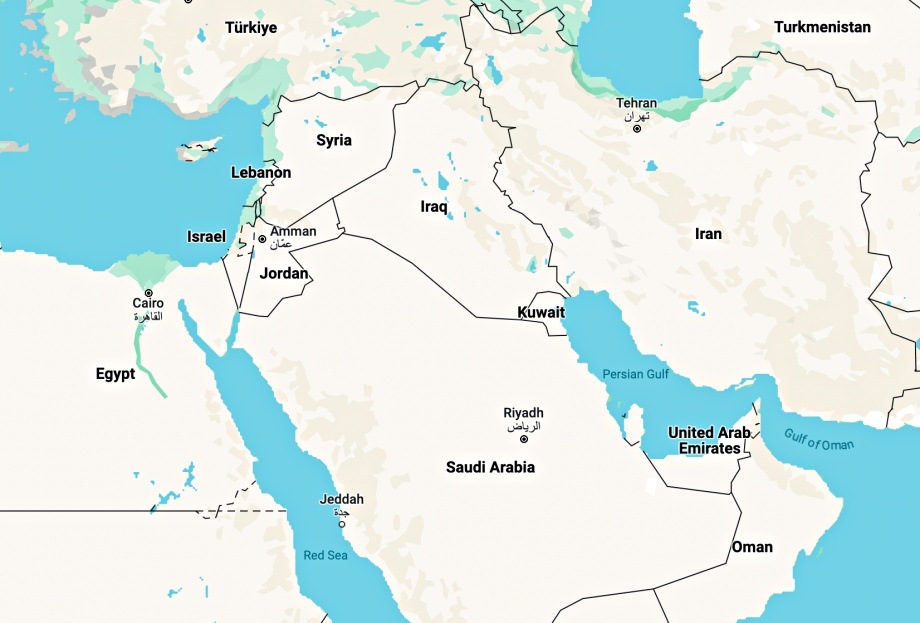Why Israel attacked Syria’s airports, amid its ongoing war with Hamas
What are relations among Israel, Hezbollah and Syria like? How has Syria been involved in the current Israel-Hamas conflict? We explain.
 A woman looks on as Syrians gather during a pro-Palestinian protest to express solidarity with Palestinians in Gaza, in Yarmouk Palestinian refugee camp, near Damascus, Syria, October 20, 2023. (REUTERS/Firas Makdesi)
A woman looks on as Syrians gather during a pro-Palestinian protest to express solidarity with Palestinians in Gaza, in Yarmouk Palestinian refugee camp, near Damascus, Syria, October 20, 2023. (REUTERS/Firas Makdesi) In the ongoing conflict in Gaza between Israel and the militant group Hamas, Israeli warplanes struck parts of Gaza and two airports in Syria on Sunday (October 22). This was roughly two weeks after Hamas struck Israel, in what was the biggest attack on Israel since the founding of the Jewish state in 1948.
Regional rivalries and long-running divides have determined how various West Asian countries and other actors have responded to the current bout of violence. In this regard, what explains the attack on Syria?
What are relations among Israel, Hezbollah and Syria like?
Israel has not directly spoken of its reasons for the latest attack but has previously mentioned the need to prevent another front of the fighting from opening up towards its north. It is believed that the strikes are linked to attacking the Lebanon-based, Iran-backed militant organisation Hezbollah, which has threatened to open a front of attacks towards the north of Israel. Lebanon and Syria both border Israel in its northern region. Hezbollah and Israel have exchanged fire in the last few weeks but Hezbollah is yet to formally join the war.
 Map of West Asia. (Screegrab via Google Maps)
Map of West Asia. (Screegrab via Google Maps)
Hezbollah and Israel: Historically, since the group’s creation in 1982, Hezbollah has opposed Israel and Western influence in West Asia. It has also, along with Russia and Iran, supported the regime of President Bashar al-Assad in neighbouring Syria during its civil war.
Hezbollah, in turn, is supported by Iran. The group was inspired by its theocratic model (having a religious regime ruling the country) that has been in place in the country from 1979 onwards. Hezbollah is also a Shiite organisation, and Iran’s support of it reflects West Asia’s two major powers and their rivalry – the Sunni Muslim-dominated Saudi Arabia and the majority Shia Muslim-dominated Iran.
The United States estimates that Iran supplies hundreds of millions of dollars in funding to Hezbollah and that it has thousands of fighters.
Syria and Israel: Syria has opposed Israel since its formation in 1948, in line with the policy of other Arab countries for a long period. It has viewed Israeli presence and occupation to be against Palestinian and Arab interests. The two have also fought wars, including the Six-Day War of 1967 that led to Israel occupying Syria’s Golan Heights – which it still controls today.
Hezbollah and Syria: Analysts say this relationship has shifted over the years with changing external influences. While both Arab parties are opposed to Israel and Western influences, allying with Russia as well, they have also had conflicting interests at times. Hezbollah has had to accept Syrian groups’ presence in Lebanon after the Lebanese Civil War ended in 1990. Syrian President Assad, who has ruled the country since 2000, has had to accept Iran and Hezbollah’s Syrian Shia militias in the country.
How has Syria been involved in the current conflict?
Syrian state media reported that Israeli airstrikes have targeted the international airports in the capital, Damascus, and the northern city of Aleppo. The strikes killed one person and damaged the runways, putting them out of service.
Israel has carried out several strikes in Syria, including on the airports, since the war began. In Lebanon, Hezbollah said six of its fighters were killed Saturday, and the group’s deputy leader, Sheikh Naim Kassem, warned that Israel would pay a high price if it started a ground offensive in Gaza.
Earlier in the war, Hezbollah had said in a statement that it fired at Israeli positions in the disputed Chebaa Farms, located along the border with Syria’s Israeli-occupied Golan Heights, using “large numbers of rockets and shells”. It also declared its solidarity with the “Palestinian resistance.”
What are the concerns here?
Israeli Prime Minister Benjamin Netanyahu told troops in northern Israel that if Hezbollah launches a war against Israel, “it will make the mistake of its life. We will cripple it with a force it cannot even imagine and the consequences for it and the Lebanese state will be devastating.”
Hezbollah is believed to have a sizeable force and backing in terms of weapons from countries that support it. And so as the war enters its third week, worries are mounting over a potential ground invasion of Gaza from Israeli forces and the spillover that actors like Hezbollah can cause, potentially widening the spread of the conflict to other countries in West Asia.
(With Associated Press inputs)
- 01
- 02
- 03
- 04
- 05






































